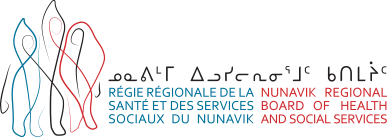Registration
We will contact you after receiving your form to proceed with your official admission and invite you to submit the required documents.

At the heart of a constantly evolving service offering, the Far North team at Cégep Marie-Victorin offers a learning environment rooted in the realities, knowledge and perspectives of the First Nations and the Inuit.
Our teaching aims to recognize and value the unique experiences of Indigenous citizens, allowing them to develop their skills and fully contribute to the vitality of their communities.
In partnership with local stakeholders, our mission is to support Inuit and Cree people in their academic and professional careers, so that they can build their confidence, assert their expertise and make a lasting commitment to their communities.
In this spirit, we aspire to support their autonomy of agency, self-governance and transformative power within their communities.
Crossing paths: Our Nordic partners | |
Nunavik Regional Board of Health and Social Services (RRSSSN)  | Cree Board of Health and Social Services of James Bay (CCSSSBJ)  |
Since 2010, the Far North team at Cégep Marie-Victorin has worked closely with the Nunavik Regional Board of Health and Social Services (RRSSSN) to offer credited programs and adapted training for Inuit workers, while considering the cultural and geographical realities of the North. Thanks to the financial support of the RRSSSN and a trusted relationship built over the years, we are able to offer these training courses directly in the region, while respecting the knowledge, languages and needs of the communities. This offer is aimed at employees in a wide variety of settings: CLSCs, hospitals, community centers, treatment and rehabilitation centers, group homes, supervised accommodations and services of the Youth Protection Department (DPJ). | Since 2018, our presence has also expanded to the Eeyou Istchee territory, thanks to a strong partnership with the Cree Board of Health and Social Services of James Bay (CCSSSBJ). Together, we support educational activities for RIS workers engaged with their community, offering respectful support rooted in local realities.
|
Our commitment is to offer a respectful learning environment, anchored in northern realities and nourished by the knowledge of our Inuit and Cree participants.
We are committed to :
Our approach is built with and for communities, in a spirit of openness, listening and cultural anchoring.
RAC is the opportunity to have your lifelong learning and experience recognized by a college diploma. All your previous work, volunteer, training or educational experiences could lead to a post-secondary credential, if they are related to a recognized program of study.
Experiences gained in Quebec, elsewhere in Canada or around the world may be taken into consideration. The RAC process also values the knowledge and skills you've acquired from Elders or within your community.
To find out more, visit the RAC for Indigenous Peoples section.
We will contact you after receiving your form to proceed with your official admission and invite you to submit the required documents.
Discover the programs and courses offered in English.
Visit the English section